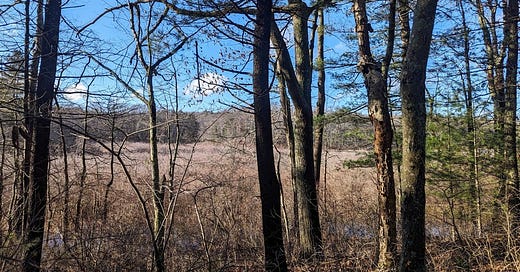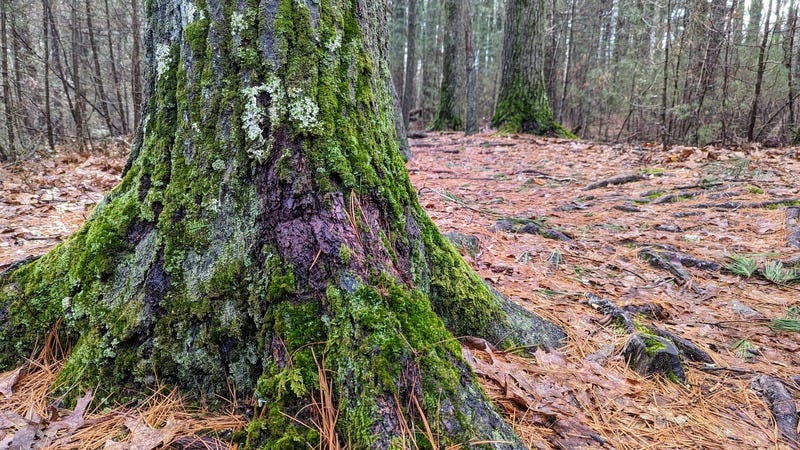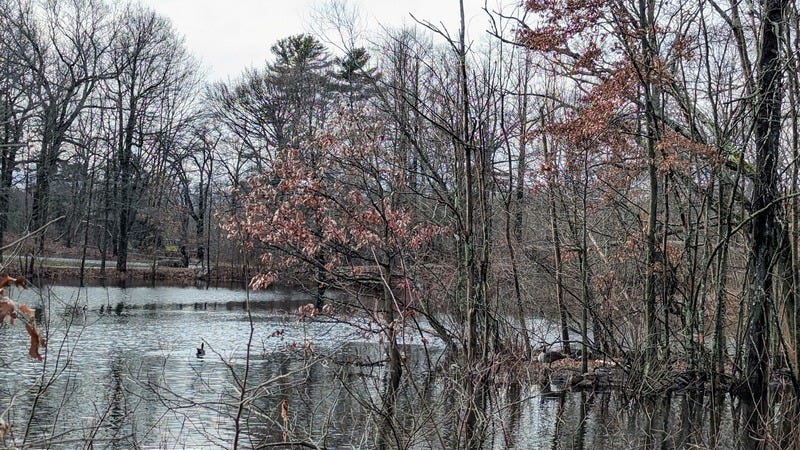Yes, you can still say "women."
I support women's spaces. I also support all-gender spaces. They are not the same.
If you run a women’s community space, you provide coaching for women, or you are writing a book to inspire women, it’s okay to describe your work in that way. If your target audience truly is women, call them “women.”
You may be thinking you’d like to be more inclusive than that. However, you don’t want to invite people of all genders to your activity.
The problem is, it’s not inclusive to invite “people who our society assumes are women.” It’s not supportive to invite a trans man to join your women’s group, because that can feel like you see him as a woman.
As a non-binary person, do I join women’s groups or men’s groups? Usually I don’t feel comfy in gendered groups, but occasionally I join a women’s group. I’ve been to women’s self-defense, women in tech events, and joined online groups for writing and publishing tailored for women. I’ve never been invited to join a men’s group, unsurprisingly.
It’s kind of like locker rooms at a gym. I use the women’s locker room, perhaps obviously, and people in there seem comfortable with me changing and showering with them.
However, some trans people do not feel comfortable using a gendered locker room. They may feel excluded from activities because using a men’s or women’s locker room does not feel safe.
So should we name the locker rooms more inclusively? “Women and people who I think look like women?” “Women and women-identified?” “Women and non-binary people?” I don’t think so.
Because, fundamentally, the women’s locker room is a women’s space and should be named accordingly. Just naming the locker room differently does nothing to make it inclusive to other genders.
Some phrases sound inclusive, but may not actually be helpful. For example, it’s time to remove the phrase “women-identified” from your vocabulary. I, a person who writes extensively about the words we use to describe people, have no idea what “women-identified” actually means. Women and women who identify as women? Let’s just say “women.” Note that “women” includes both cis and trans women, by definition. Trans women aren’t “women-identified”—they are women.
“Women and non-binary people” is challenging because this often means in practice “women and women-lite” or only people who are assumed to be women in our binary society. This likely excludes some non-binary people were were assigned male at birth and some transfeminine people.
“No cis men” is a very clear way to say what a lot of these descriptions hint at. But, we’re all scared of saying cis men aren’t welcome, aren’t we.
A small peeve: if you have a class, a paid business community, a coaching group, and it is just for women, please let me know upfront, so I do not need to wade through sales pages talking about how inclusive and LGBTQ friendly your program is, only to find, “welcome, ladies!” at the end. Let me make an informed decision whether I want to join your community or not by letting me know right away who it is for.
If you’re thinking, wait, I don’t want to lose potential customers because of their gender identity, consider making your business truly more gender-neutral. Don’t wrap it in gender-neutral language but actually keep the core of it a gendered group.
On the flip side, some groups are gender-inclusive but members still use gendered language. Some Facebook groups I participate in are for everyone but cis men, yet posts sometimes still start with, “Hi ladies,” or express gratitude for being in community with women. I’m not upset—I’m not offended—I’m merely trying to raise awareness that a variety of different people participate and contribute to these gender-inclusive spaces.
I support women’s spaces. I think they should be called women’s spaces. I generally choose not to participate in these communities, however, I think they can be crucially helpful for the population they do serve.
I support spaces just for trans people. Yes, these are gendered spaces too.
I also support all-gender spaces.
My approach to building a community to support trans people, non-binary people, and women (with a lot of overlap between these categories) is to talk about trans rights, non-binary rights, and women’s rights. I don’t try to limit community members based on their gender. The cis men who participate tend to be allies.
Thanks so much for reading! Let me know what you think in the comments.
Do you need digital marketing assistance? I can help with graphics, websites, search, newsletters, videos, and more. Learn more and book a free discovery call at weshineconsulting.com!
Check out my videos! YouTube • TikTok • Instagram • Facebook
Take care,
Rey










Thanks for this, Rey! I am with you - I get why/how the term "woman-identified" came about, but I don't quite get what it is supposed to mean. To me, it sounds like either it refers to someone who is a woman ( in which case, why not just call them that?), or it refers to someone that the person using the term perceives as a woman (in which case, it's harmfully presumptive and shouldn't be used).
This sticky problem of inclusivity and separate space is a big one, and we need to have lots of discussions about it. I agree with your assessment that if a space is for "women only" it is not inclusive, but that isn't necessarily a bad thing, as long as the space holders are honest and transparent about who the space is for. I'd much rather know that I'm not included than think that I am only to find out that I wasn't even considered by those who decided who the space should be for.
You brought up a very important idea: yes, we need to be willing and able to say when/if a space is not open to cis men. In the same way that white people need to learn to not assume they will be welcome in spaces intended for BIPOC, cis men need to learn to not assume they will be welcome anywhere they want to go. While I agree that ultimately, we need all genders included equally, that is nowhere near the reality right now, and people who are not cis men have a right to sometimes have spaces where they can feel reasonably sure they won't have to grapple with the presence of privileged entitlement. Just as I, as a white person, cannot honestly guarantee I won't unintentionally invoke a racist attitude or belief among BIPOC, even the most educated, sensitive cis man cannot honestly guarantee that they won't unintentionally say or do something that perpetuates gender marginalization, and it can be very healing for us to sometimes get a break from the incessant threat of that marginalization.
There is a distinct difference between a marginalized group creating separate space for the sake of relief from ever-present marginalization, and a dominant group creating space that is either intentionally or ignorantly unwelcoming to marginalized people. We need to have room for both bridge-building and protected spaces, and we should not be afraid to say who is being excluded and why. If our reasons for excluding are to make a space safer for marginalized folks, there's no reason not to say so. And if our reasons are not equitable, we need to be honest about them in order to learn what we need to learn to stop excluding.
I've said this before, but I think it bears repeating: we are, as a society, in an acute "growing pains" stage of awareness regarding gender. A lot has changed culturally in the last few decades, and especially the last few years, and none of the dust has really settled yet. I am glad for writers like you because I do believe what we really need is lots of spaces where people feel that they are allowed to ask questions or start conversations about gender-related topics that seem strange or confusing. I know that many non-cis people get tired of educating cis people about gender, and I hope that cis people respect that. That being said, those questions have to be answered for dominant culture to get comfortable enough with the nuances of gender to be willing to be allies for us. So people like you, who are not just willing, but proactively educating and starting discussions, are invaluable, and I thank you for taking that on.
I'm with you and Anastasia about the nonbinary spaces. I would love to have that once in a while, and hope that it would be not just nonbinary, but also agender-inclusive.
Love this, Rey!! This is something I struggle with and I share many of your opinions and thoughts. I also find it so hard to express how it feels to move through the world as "woman" (bc people perceive me as a woman) and to express my individual experience as nonbinary. I don't get the "women-identified" thing either. Like- if someone identifies as a woman then call them a woman!!
Many "women only" spaces were created as a safer space for women, but aren't safe for ppl like you and I. Lately I've been thinking about creating exclusively nonbinary spaces. Liminal spaces. I think that's a space I'd like to exist in.